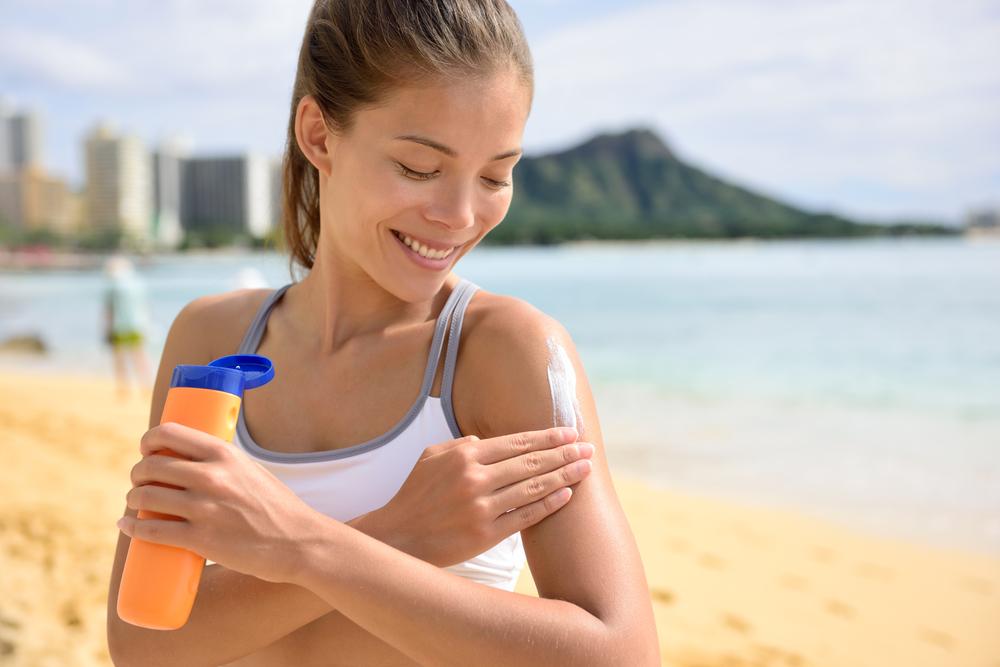FEATURED

-
4.4K Views 0 Comments 1 Like

ood to be alive! The Earth is like a field in summer, just bursting with good things,” according to Czar Nicholas II’s character in the 1971 film, “Nicholas and Alexandria”. That’s exactly how most people feel about the shift from the gloomy, depressing light and darkness of winter to the warmer days and nights of summer. As you treasure the beauty of the coming weeks, you shouldn’t neglect your skin care but, most importantly, keep your sun protection regimen consistent.
Should Coconut Oil Be Used As Sunscreen?
No. Traditionally, these may have been used to provide sun protection in an era when sunscreens have yet to be invented, bottled and distributed. Even then, coconut oil was more notably used as a moisturizer and treatment for a number of ailments, including to heal burns and scaly skin but, not so much as to mimic the uses of SPF 30 sunscreen.
Listed below are the top 5 reasons why you should never use coconut oil or, any plant oil for that matter as an alternative to commercially prepared sunscreens:
Reason No. 1: Plant oils cannot block UV as efficiently as commercial active sunscreen ingredients.
While plant oils could have potentially been safer alternatives to toxic chemical sunscreens, a study published in the International Journal of Cosmetic Science in 2016 concluded that plant oils, including coconut oil, cannot provide a sufficient level of sun protection and are, therefore, not fit to be used as sunscreens.
Reason No. 2: DIY sunscreens that use plant oils are not graded for SPF.
To guarantee that a formula can provide a certain SPF protection to block out the sun burning effects of UVB, it needs to go through a defined process of grading and demonstration to be approved by the Cosmetic Toiletry & Perfumery Association (CTPA).
SPF is the measure of how much longer your sunscreen allows you to stay in the sun without getting burned versus the time it actually takes for your skin to get toast without SPF. To determine that, an average is taken using human subjects, and that requires clinical trials which, clearly, is simply not present when you DIY.
Reason No. 3: Coconut oil does not have any clear measure of how much sun it is able to block.
This is related to the preceding discussion about not knowing the SPF of the sunscreen that you are using. All that you need to know really is that the proof is already in — that is, coconut oil cannot provide sufficient sunscreen protection.
When commercial sunscreens are graded with an SPF, it also gives you an idea of how much UVB is being blocked out of your skin. The daily uses of SPF 30, for instance, is now preferred over the protection that an SPF 15 sunscreen because an SPF 30 can block up to 97 per cent of sunburn causing UVB while an SPF 15 sunscreen can only block out 93 per cent. In no way, however does it follow that higher SPF is always better because the incremental benefits diminish beyond SPF 30. For instance, a sunscreen with SPF 50 will block 98 per cent of UVB, which increased only by 1 per cent compared to a product with SPF 30. This is why the CTPA grading stops at SPF50+.
Reason No. 4: There is no evidence that shows coconut oil is capable of blocking out UVA.
We’ve only gone as far as tackling UVB but, how about UVA? Coconut oil is not capable of blocking out either type of UV. Using coconut oil for sun protection, therefore gets your skin burned and leaves your skin wrinkled and spotted.
Reason No. 5: Coconut oil is not a safer alternative to toxic, chemical sunscreens.
Let’s go back to the basics, Honey: coconut oil cannot block out sufficient amount of UV to be considered a sunscreen active so, how can it be a safe alternative? Rather, it is unsafe to be putting the fate and health of your skin to coconut oil, simply because applying it on your skin for sun protection is equivalent to not putting on sunscreen at all. That is a dangerous practice that can take a toll on your health and even endanger your life.
Conclusion.
Don’t believe every information that you get from the Internet, not even when your sister and your best friend swear by it. Look for evidence and advise from qualified authorities, most especially when it puts your health and life at risk, like in the case of sunscreens.


